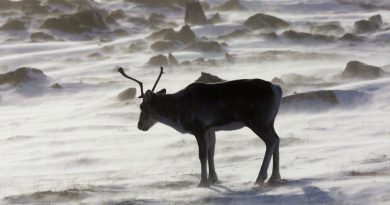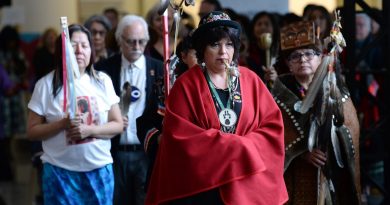BLOG: Harper’s Arctic tour conceals shift in circumpolar politics

In the midst of the hoopla for Stephen Harper’s 8th annual Arctic trip this year, two extremely interesting things took place, and neither of them involves an honorary Canadian Ranger status.
The first is that, with very little fuss, the Russians (!) were invited to observe this year’s Operation Nanook. Op Nanook is the “premier annual Canadian Armed Forces (CAF) operation held in Canada’s North”, held since 2007, and took place this year from August 2 to 23 in Whitehorse, Cornwallis Island, King William Island, and Resolution Island.
This is Arctic defence diplomacy in full swing. Canada has brought in participants from other countries before, notably Denmark and USA the past two years, with the UK added as an observer in 2012. This year Sweden, Norway, the USA and UK also participated as observers. But it is something altogether different for Canada to invite Russia and a delegation from its Northern Fleet – the only plausible potential adversary in the Arctic – to its preeminent Arctic exercise. If the perception that a conflict in the Arctic has been decreasing over the past few years, then this event makes it conclusive: there is no threat of military conflict in the Arctic.
How interesting, too, that the Canadian Forces chose not to communicate this very important fact. As best as I can tell, the story was broken, to very little fanfare, by the respected Barents Observer, which found it on the Russian Ministry of Defense’s website. Although previous years’ CAF press releases on Nanook highlighted the international presence of observers, the silence on Russia’s 2013 participation is deafening. Perhaps CAF, or more likely the PMO, chose not to overshadow Harper’s tour; perhaps they could not trust the Canadian media and public to react without hyperbole or alarmism. If the latter, who could blame them? But it’s a hugely symbolic and important confidence builder for the region and an example of all that is right in circumpolar diplomacy.
Meanwhile, Tom Flanagan wrote a bombshell of a commentary on how the Conservatives became the flag bearers of Arctic identity politics in the first place. (Flanagan has recently been publicly repudiated for his remarks on child pornography, but his authority on the Conservative party’s 2006 election strategy remains undisputed).
Turns out the 2007 series of announcements on icebreakers, a deepwater port, patrol vessels and more – which contributed significantly to the brief but defining characterization of the Arctic as a region at risk of conflict – was based not on careful military assessment but on the political calculation during an important election that promising new Arctic military expenditures would be “a way to fight back against Liberal charges that Mr. Harper would be an obsequious suck-up to the Americans.” As Flanagan writes,
“After winning the election, the new Conservative government quickly found out that the Canadian Forces were eager for new equipment to fight a desert war in Afghanistan, not to engage in an arms race in the Arctic. In consequence, Conservative military promises for the Arctic have gradually been scaled back.”
And there it is. The military tension in the Arctic that was created so haphazardly, based on domestic politics, campaign manoeuvring and a titanium flag planted by an aging Russian explorer, has after seven years righted its course. Operation Nanook, which was established as a response to the Arctic sovereignty clamour, is no longer a symbol of nationalism, but of cooperation.



